Tom and I are preparing to do an episode of ClimbSci on weight loss, which got me thinking about diets and dieting in general. This article is a reflection on some of those thoughts.
As a nutritionist, I seek out articles both scientific and mainstream to see how our understanding is changing. With science, our understanding progresses with hypotheses and experiments themselves; for example, dietary cholesterol was once unknown, then ignored, then reviled, then exonerated as more research was conducted. Mainstream changes, on the other hand, tend to relate less to scientific truth or accuracy and more to pet theories—fad diets tend to rule the day, often with poor scientific evidence or any at all.
Because of these dalliances into the written world of nutrition, I get a lot of nutrition-related articles in my newsfeed that Google thinks I’ll be interested in (mostly I am not). Even if I don’t read the articles, their headlines are revealing, though, because they provide a rough sketch of how journalists frame dieting, and through that framing I get insight into how we (the consumers) think about dieting.
And the way we think about it is mostly wrong.
Consider these headlines:
“The pegan diet — a hybrid of paleo and vegan — could be the next big thing”
“Why are people excited about the ketogenic diet?”
” Diet and nutrition trends to keep (and toss) in 2019″
I’m not linking to the articles or even listing their sources because I think they’re irrelevant and I don’t think any of the articles are worth your time; if you’re curious, you can google them and I’m sure you’ll find them with ease! Without even reading the articles, though, these headlines display a sorry understanding of nutrition—a belief that our diet’s adequacy is measurable not by nutritional worth, but by the opinion of the day.
This is the first point I’d like to reflect on.
Diet “Fads” are Conceptually Ridiculous
For billions of years, life has existed in concert with nutrition. Nutrition for the first life forms was chemically simple, but as life evolved and complexity increased so did their nutritional requirements. Extremely complex lifeforms (such as mammals) require over 50 nutrients (between vitamins, minerals, amino acids, fatty acids, and calories) in relatively exact amounts to thrive; too much or too little of something can cause illness or death in an organism.
Humans have been around for only a blip of this total time, but in this time we have thrived. And except for another blip in that short blip of human existence, we’ve done so with zero knowledge of “nutrition” as a science; we ate what our environment provided, and environments that could not provide did not become inhabited (or were rapidly uninhabited as humans moved away or died).
In recent years, human health and lifespans have increased dramatically thanks in large part to medicine (including vaccinations), sanitation, and lifestyle/culture changes (e.g., less violence). Nutrition has played a role as well, of course, but it’s arguably a smaller role than most people suspect. This isn’t because nutrition cannot affect one’s health—it obviously does—but because “good nutrition” essentially boils down to the same thing it always has: getting the right amounts of the right nutrients, with too little or too much of any given nutrient leading to dysfunction or death.
Despite these increases in health and lifespan, however, we humans still get sick. Sometimes we develop cancer, sometimes our body attacks itself (as in an autoimmune disease), and sometimes we find our energy inexplicably low. There are countless ways for humans to become ill or die prematurely, and most of them are outside of our control. But because we know nutrition can affect health—and because we have full control over our nutrition, unlike most other aspects of our anatomy and physiology (such as our genetics)—we may seek to control the uncontrollable through diet simply because it’s the one thing we can control.
In grad school, I wrote something to this effect for a paper, and I framed it positively. For a sick person who finds themselves at the mercy of the universe, having control over anything can be empowering, and that empowerment may provide the boost they need to go on mentally. I stand by that. But there’s a dark side to it as well, because despite the mental feeling of control, the reality is most diseases are not significantly affected by nutrition, so when we develop an illness we may place unfair blame on that one controllable piece of the puzzle.
Throughout the world, there are more dietary patterns than can easily be counted, and they can be astonishingly diverse. The only (common) diet pattern that we can confidently say is unhealthy, though, is the Standard American Diet (SAD)—that sordid combination of high-calorie and low-nutrient foods epitomized by fast food (think lots of starches and fats and little fruits and vegetables). Without a doubt, adherents of SAD are more likely to develop obesity, diabetes, cardiovascular disease, and certain cancers, and they’re much more likely to die prematurely due to complications arising from these diseases. In this case, diet is a direct cause, and dietary intervention is a direct solution.
A French diet, though, is unlikely to cause these problems. So is a Chinese diet, or an Egyptian diet, or a Bolivian diet. There are significant differences between all these diets, but they share similarities as well: they contain more plant-based foods, fewer refined foods, and there are typically cultural “rules” about meal etiquette (such as when to eat, how much to eat, etc.). It would be impossible to objectively say one diet is “better” than another in these cases (though of course individuals may fare better or worse given the diet’s contents and constraints) as all these diets produce what we might call “good results”—lower incidence of chronic disease and greater longevity.
All of this brings us back to the headlines I mentioned: they all discuss diet as if it’s something we should be changing frequently when we would really be better off finding a single way to eat that “works” for us and feeling comfortable with our decision. The idea of a “fad diet” is ridiculous, therefore, because it:
- Encourages diet hopping in the name of health.
- Harnesses social pressure to make certain diets cooler or less cool, even though “coolness” is perhaps the worst reason to do anything health-related.
- Turns dieting into an industry where diets are products meant to generate excitement rather than stability and health—think the difference between cars and TVs and furnaces and water heaters.
Fad diets will always be around, and they will always change. Do you think in 50 years that the people following the diet du jour will be healthier than those today? Are today’s fad diet healthier than those of yesteryear? I don’t think so on either count.
This isn’t the only way we misthink about diet, though. As briefly mentioned earlier, we also ascribe diet more power over our health than it actually has, which leads to my second reflection.
Hippocrates Was Wrong
There’s a quote attributed to Hippocrates that is a favorite amongst nutritionists and nutrition-enthusiasts alike:
Let food be thy medicine and medicine be thy food.
Whether or not Hippocrates really spoke these words or what he truly meant by them is irrelevant—it’s their current popularity that is more revealing because, once again, it implies that disease is both preventable and treatable by nutrition. Worse, it implies that when disease does strike that it is due to dietary problems (or could have been prevented by better dietary habits). Aside from diseases caused by nutritional deficiencies or excesses, though, most diseases are not particularly influenced by your diet, and the small ways in which they are relate to large-scale patterns (such as vegetable intake), not the micro-patterns that make up the regimen of any single diet.
I’ll frame this another way, using statistics from this article on vegetable intake and all-cause mortality as an example (specifically the section on cancer to narrow it in more). The study examined 134,796 adults in China and using dietary data associated the odds of dying with eating more or less vegetables. For cancer, the hazard ratio of the top quintile of intake—the 20% of people who ate the most cruciferous vegetables—was 0.9, meaning they were about 10% less likely to die of cancer. Sounds amazing, right? Unfortunately, our brains are pretty bad at these types of statistics, and the reality isn’t as glamorous.
To begin with, we can say that of all the people in that cohort who developed cancer, only 1 in every 10 could have hypothetically prevented their death through higher vegetable intake. That means 9 out of every 10 were going to die regardless of their diet—it could have been better or worse, and most likely it wouldn’t alter the outcome. This still doesn’t explain the entirety of the dilemma, though—we have to dive in deeper.
In total in the study, about 2,400 people died of cancer out of about 5,400 deaths total. If we subtract the 3,000 people who died of other causes, that leaves us with about 129,000 people for whom cancer was never an issue, diet notwithstanding. Putting it all together, we can say that for most of the people studied, developing cancer (or not) had very little to do with diet—only 1.8% died of cancer, and of that 1.8% only 10% of them could have changed the outcome through diet. So, about 0.18% of people in this study could have prevented cancer-related mortality through dietary changes while the other 99.82% could not.
None of this is to say that we should eat however we want because none of it matters—I’m not so nihilistic! I just want to provide some context. There are clear reasons to consume a healthy diet, including the prevention of a plethora of diseases that are clearly related to a poor diet. We’re never going to be able to eradicate disease or dysfunction completely through nutrition, though—there will always be bacteria, viruses, protazoa, and faulty genetics that lead to problems we can’t superfood away.
There is no perfect food. There is no perfect diet. We think of diets as a way to control our health—and they are—but we must recognize their limitations. Some diets (and lifestyles) will help us age better, but we will all grow old regardless of our diet. Some diets will help us avoid preventable deaths, but death will find every one of us one day. Through the years, we will inevitably gain fat and lose muscle, and while we can influence the rate through nutrition, we cannot completely defy it. No diet has the power to preserve the vibrancy of youth through our years, but it was never meant to do so—our diet nourishes us so we can enjoy life while it lasts, pass our genes and wisdom to a new generation, and hopefully die peacefully.
There Is Some Irony to This Article
I myself am a nutrition writer, so there’s at least some irony here. I dispense diet advice myself, and I encourage certain eating patterns while discouraging others.
I think there is a difference, though, and you can let me know if you agree (or not). For one, I focus the majority of my writing on the objective evidence we have (as elucidated through scientific research) that certain dietary patterns or molecules affect sports performance, a much easier to quantify phenomenon than “health”. I also do my damnedest to avoid criticism of any specific diet, instead addressing potential flaws and fixes.
Through all of it, I’ve tried to encourage people to eat what one might call “sensibly”—to eat a diet rich in whole foods and low in processed foods but with allowances for the foods that make life enjoyable. This is possible in any number of ways and nearly all diets (including most fad diets) encourage this base level of sensibility.
Where I’m different, then (or where I try to be) is in the specifics, because I say the specifics don’t matter as long as the basic sensibility is there. Eat grains or don’t, it doesn’t matter—just eat a diet rich in less-processed foods and avoid excess intake of processed ones. And hopefully, eat a diet that agrees with you, that allows you to enjoy meals daily, and that is sustainable.
Change Your Expectations
I may be preaching to the choir with this article, but I don’t think it hurts to reiterate these points from time to time, not least because we’re constantly bombarded by messages encouraging the opposite. We’re encouraged to think of diets in a dangerous way—as cool products to latch onto and then dismiss in favor of something newer and cooler. Truly healthy diets are boring, though. They remain the same for years and decades.
There was a time when this way of thinking about diets seemed uniquely American, but from what I’m reading it appears it’s spreading around the world. I don’t know if we can change the tide, but we can at least encourage each other to think sensibly about diets.
One of the reasons I try not to criticize specific diets, even when I find their rationale silly or unscientific, is that neither the rationality or scientific evidence for a diet is directly linked to their healthfulness. Healthfulness is linked to the foods a diet encourages its adherents to eat, and often those foods are reasonable and healthy. If a person enjoys eating according to a specific diet, my job isn’t to convince them their diet is improperly founded in science, it’s to continue encouraging them to pursue healthy dietary patterns. In almost all cases, that means persisting in the same diet because it’s healthy enough or as healthy as we can expect.
It’s easy to criticize the media for portraying diets in unrealistic terms, but we need to be careful not to fall into the same trap ourselves, because the moment we believe one diet is superior to the others (even for scientific reasons) we’ve dropped down to the same standard. Our expectation shouldn’t be that any diet is inherently superior—whether for scientific or cultural reasons—but rather that many diets can and do produce health in humans.
In this New Year, let’s encourage each other to eat healthily, to be persistent in our dietary goals, and to think about diet better. That’s all. We’ll discuss more in the episode, hopefully releasing sometime this month!



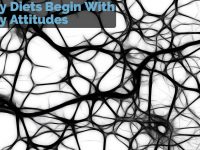
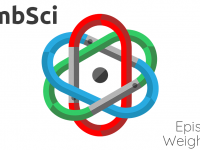

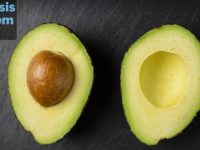
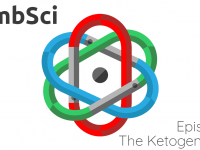
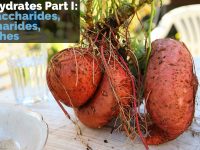






Hello colleagues, its fantastic piece of writing concerning educationand fully defined, keep it up all
the time.
Heya this is kind of of off topic but I was wanting to
know if blogs use WYSIWYG editors or if you
have to manually code with HTML. I’m starting a blog soon but
have no coding know-how so I wanted to get advice from someone with experience.
Any help would be enormously appreciated!